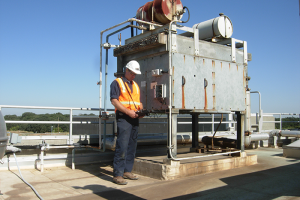Hospitals seek recycling solutions for medical plastics

The Healthcare Plastics Recycling Council is leading the charge to collect flexible plastic materials from hospitals in an effort to research and develop viable recycling solutions for medical plastics.
Photo by Shutterstock
Medical-grade plastics often are stigmatized in recycling. The assumption among many recyclers that clinical plastics are harder to process due to contamination and the nature of the materials, which often use both rigid and nonrigid plastics in one package, has made it difficult for many hospitals to find alternatives to landfills.
Three hospitals, however, have teamed with the Healthcare Plastics Recycling Council (HPRC) to change that notion. Cleveland Clinic, Lehigh Valley Health Network and Dartmouth-Hitchcock Medical Center are working to collect 3,000 pounds of flexible plastic materials at their health care facilities and ship them to EREMA, a manufacturer of plastic recycling equipment, for initial processing. After that, the material will be delivered to the University of Massachusetts Lowell where researchers in its plastics engineering department will test commercially available compatibilizers to improve the blending properties of the plastics.
Cleveland Clinic jumped onto the opportunity after ending a previous recycling program. The hospital was recycling clinical plastics from its surgical suites for four years prior and recycled 200 tons of plastics annually. It is now taking its program a step further to sort through the purple-lined bags that the surgical teams use for clinical plastics and separate the types of mixed-material plastics needed for the HPRC project.
Zachary Conway, sustainability coordinator at Dartmouth Hitchcock is heading the collection efforts at his hospital. He says that by hospitals making a conscious effort to collect materials that have traditionally been considered difficult to recycle will help to create interest among recyclers and hopefully lead to beneficial products and less waste.
"This will help to create larger stream and help to bolster the use of recycled materials from the medical world,” he says. “There’s a big stigma with medical grade recycling, for both rigid and nonrigid plastics. Being able to say ‘Yes, this is clean viable material that can be recycled,’ is going to be key.”




